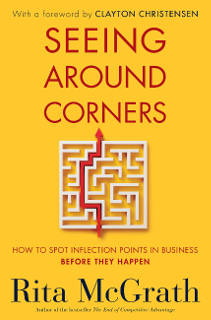[Photo by Macau Photo Agency on Unsplash]
Dear friend,
The week gone by was unprecedented in many ways. WHO declared the coronavirus outbreak causing COVID-19 a pandemic. Saudi Arabia’s oil pricing strategy spooked the oil markets. Governments around the world issued travel restrictions. In India, states have chosen to respond pretty aggressively too. The Karnataka and Delhi governments have closed schools and malls and banned public gatherings. Not to forget, the stock market tanked the world over and erased trillions in shareholder wealth. All this in just one week.
The response to the pandemic has varied across the globe. For example, in the US, various scenarios project that a sizable proportion of the population would be infected with the virus pretty soon. So the main focus is shifting to testing and management of patients in an orderly way, rather than containment alone. The immediate problem though is that there are no kits to test the virus. The response is considered to be really poor by developed world standards. Italy has bungled its way through and now Chinese doctors are helping them with their strategies.
The general commentary suggests that Singapore and China (after the initial spread) have been the best at managing this pandemic. The learnings play out well for other countries to follow. A strong plan based on prior experiences (SARS, H1N1) for testing, isolation, mobilising resources and supplies, a competent doctor network to tap into and, of course, citizens following guidelines and orders with great precision. Could this be replicated in India?
In all of this, a few important experiments are going on at an unprecedented scale.
1. The largest number of people are working from home: Zoom, the online video conferencing service, is seeing unprecedented sign-ups. Skype and Google are trying out new approaches to win the surge of customers reaching out for new technologies to communicate. Etiquette for working from home has surfaced in all leading productivity journals. One example is here.
2. A large number of students are switching to attending classes online: Universities have closed, but classes still happen online. Students should login and attend classes. A new set of guidelines for both, professors and students, have emerged. WHO has embraced online courses to help spread the response and preparedness for COVID-19. Many of the conferences, like this one by Apple, have also moved online. This presents great opportunities for students and participants to explore new ways of learning and participating in events online. Closer home, Byjus and Toppr have made their online courses free for all students to use. This could be the inflection point one was expecting in online learning.
3. There’s significant reduction in airline and sealine traffic: Air travel is curtailed across the board. One study shows that over 200,000 flights have been cancelled to and from China. And container shipping has also plummeted. Both air and sea logistics contribute significantly to carbon emissions. While the traffic reduction will cause immense harm to the travel and logistics industry, the silver lining is that it could reduce greenhouse gas emissions considerably as per this report on China. Here is satellite imagery by Nasa on the reduction in nitrogen dioxide emissions over China during the peak of the crisis. If we are serious about addressing climate change, some of these reductions have to come about, but with less disruption than what has happened now.
4. There’s extreme high sensitivity to personal hygiene: With the origin of the virus traced to an animal (wet) market in China, the call for reviewing the rules for such markets the world over has increased. Also, there could be a review of guidelines for import and export of meat across borders. In addition, there is a new-found awareness of personal hygiene, which is especially relevant for developing countries. One project found that “Just handwashing with soap can reduce death rates from pneumonia and diarrhoea by up to 65%.” Vietnam produced a fun pop video on hand washing that has caught the fancy of people. It's been viewed 16 million times and has a hand washing video dance challenge on TikTok. John Oliver had a nice take on it here. Could this crisis trigger new behaviours towards personal hygiene?
Each of these presents an opportunity for us to learn how global society adapts during a crisis. As noted environmentalist Bill McKibben writes, “It’s worth noting how nimbly millions of people seem to have learned new patterns.” This is how large-scale change happens during a crisis. It’s up to us to take these newly learned patterns and build on them for the future well being of us all, for a change of such a scale is certainly needed to combat climate change.
The pandemic is indeed an inflection point. Too much change very suddenly. But the contributing factors have been building up over the years and have gone unattended, especially the focus on public health systems and climate change. From a business perspective, the over-dependence on China to fill the supply chains of the world may also have been overlooked. Perhaps, this crisis will trigger a change in the coming months and years.
Speaking of inflection points, we have a summary by D Shivakumar of Columbia Business School professor Rita McGrath’s book ‘Seeing Around Corners: How to Spot Inflection Points in Business Before They Happen’. This is apt reading for the times.
Have a great socially distanced, safe and a productive week ahead!
CS Swaminathan
On behalf of Team Founding Fuel
Featured Story
Anticipating inflection points
Insights from Columbia Business School professor Rita McGrath’s book ‘Seeing Around Corners: How to Spot Inflection Points in Business Before They Happen’. (By D Shivakumar. Read Time: 9 mins)
What We Are Reading And Watching
A decade of music on Spotify
Spotify’s lists of the most-streamed artists and songs, milestones and achievements, and most influential genres over the past 10 years.
How large ecosystems can collapse faster than smaller ecosystems
The Guardian | Large biomes can break down like Jenga bricks once tipping point reached, research finds.
Webinar with Rita McGrath and Alex Osterwalder
Strategyzer | Whether you’re a solopreneur or the CEO of a large corporate, the question we should ask ourselves is: How much time do we actually spend on innovation? And how do you gather support inside your organisation at the leadership level, building alliances with others and also building stories around how they present their business ideas?
From Our Archives
The Sceptical Optimist: A philosopher’s take on technological progress

In this interview Nicholas Agar, author of ‘The Sceptical Optimist’, talks about why unquestioning enthusiasm and a blanket rejection of technological change are equally misguided. (By NS Ramnath. Read Time: 8 mins)
Will India’s tryst with online courses pay off?

The opportunity to transform higher education is enormous. Yet much will depend on whether faculty in our places of higher learning are able to handle the transition to this brave, new world. (By Indrajit Gupta)


